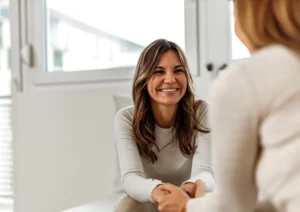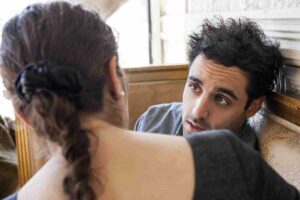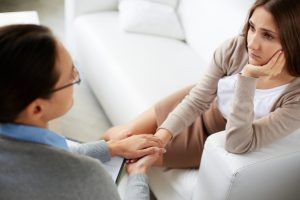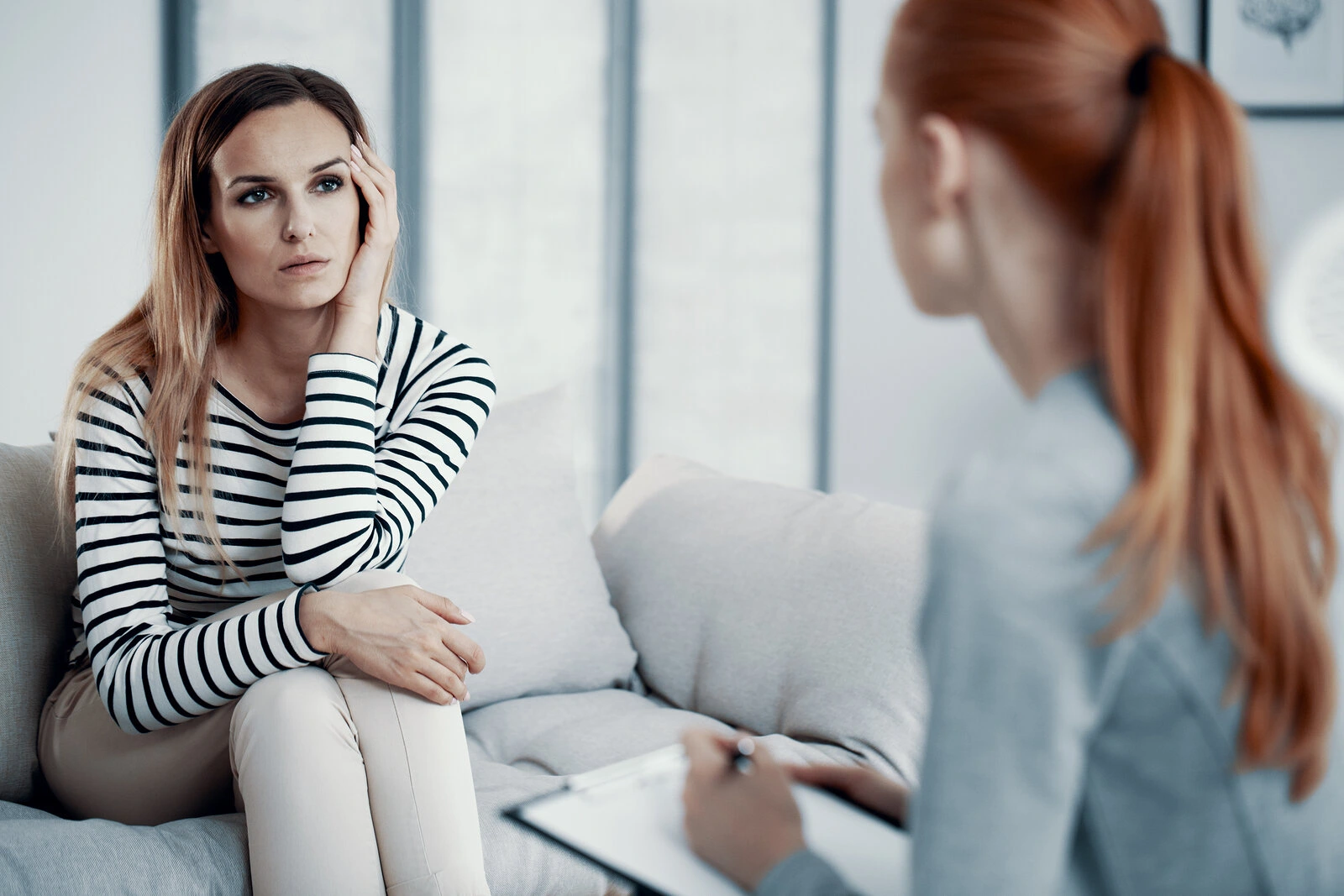Relationships play a crucial role in our lives, shaping our emotional well-being and overall happiness. However, not all relationships are smooth sailing, and individuals often find themselves facing challenges that can impact their mental and emotional state. This is where relationship counseling for individuals comes into play. In this comprehensive guide, we will explore the significance of relationship counseling for individuals.
Contents
- 1 What Is Relationship Counseling?
- 2 How Does Relationship Counseling For Individuals Work?
- 3 When To Seek Relationship Counseling For Individuals?
- 4 How To Find A Suitable Relationship Therapist?
- 5 What To Anticipate During Relationship Counseling?
- 6 How Can Relationship Counseling Be More Successful?
- 7 Conclusion
What Is Relationship Counseling?
 Relationship counseling, also comprehended as couples restorative or marriage counseling, is a type of treatment that aspired at helping duos or individuals in intimate relationships overcome challenges and enhance their relationship dynamics. It involves working with a trained therapist or counselor who specializes in relationship issues.
Relationship counseling, also comprehended as couples restorative or marriage counseling, is a type of treatment that aspired at helping duos or individuals in intimate relationships overcome challenges and enhance their relationship dynamics. It involves working with a trained therapist or counselor who specializes in relationship issues.
The primary goal of relationship counseling is to provide a safe and supportive environment where couples can openly discuss their concerns, conflicts, and emotions. The counselor facilitates productive communication and guides the couple toward understanding and resolving their issues. The process involves identifying and addressing patterns of behavior, exploring underlying emotions and needs, and developing effective strategies for problem-solving and conflict resolution.
How Does Relationship Counseling For Individuals Work?
 Relationship counseling for individuals, sometimes referred to as individual relationship therapy, focuses on addressing relationship issues from the perspective of one person in the partnership. It can be beneficial when one partner is unable or unwilling to participate in couples therapy.
Relationship counseling for individuals, sometimes referred to as individual relationship therapy, focuses on addressing relationship issues from the perspective of one person in the partnership. It can be beneficial when one partner is unable or unwilling to participate in couples therapy.
Here are some ways in which relationship counseling for individuals can be performed:
- Self-reflection and exploration: The therapist creates a safe space for the individual to reflect on their relationship history, identify recurring patterns or challenges, and gain a deeper understanding of their own role in their relationships.
- Identifying personal goals and values: The therapist helps the individual clarify their personal values, needs, and goals within the context of relationships. This process can help the individual establish a stronger sense of self and determine what they want from their relationships.
- Developing communication skills: The therapist assists the individual in developing effective communication strategies and conflict resolution skills that can be applied in their relationships. This may involve learning how to express needs assertively, set boundaries, and navigate difficult conversations.
- Addressing emotional well-being: Relationship counseling for individuals often involves exploring and managing emotions related to relationships, such as anger, sadness, fear, or anxiety. The therapist may help the individual develop coping mechanisms, emotional regulation skills, and strategies for self-care.
- Exploring past experiences and trauma: Sometimes, past experiences or traumas can impact an individual’s ability to form and maintain healthy relationships. The therapist may help the individual process and heal from past wounds that may be affecting their current relationships.
- Building self-esteem and self-confidence: Relationship counseling can assist individuals in developing a stronger sense of self-esteem and self-confidence, which can positively impact their relationships. The therapist may work on improving self-image, challenging negative beliefs, and fostering self-acceptance.
It’s important to note that while individual relationship counseling can be helpful, it may not address all relationship issues fully, as the other partner is not directly involved. However, it can still provide valuable insights and tools for personal growth and relationship improvement.
When To Seek Relationship Counseling For Individuals?
 Individuals may consider seeking relationship counseling when they are experiencing challenges or concerns in their relationships that they want to address from their personal perspective.
Individuals may consider seeking relationship counseling when they are experiencing challenges or concerns in their relationships that they want to address from their personal perspective.
Here are some situations that may indicate the need for relationship counseling for individuals:
- Relationship dissatisfaction: If an individual is consistently unhappy or dissatisfied in their relationships. Then it is unsure of how to improve the situation, seeking counseling can provide guidance and support in exploring the underlying issues.
- Communication difficulties: When communication between partners is strained, ineffective, or leads to frequent misunderstandings or conflicts, individual relationship counseling can help the individual develop better communication skills and strategies.
- Trust issues: If an individual has experienced a breach of trust, such as infidelity or deception, and is struggling with trust-related emotions like insecurity or suspicion, relationship counseling can assist in processing these emotions and rebuilding trust.
- Unresolved past issues: Past experiences or unresolved issues, such as trauma, childhood wounds, or previous relationship patterns, can impact an individual’s current relationships. Counseling can help address these underlying issues and prevent them from negatively affecting the individual’s current relationships.
- Coping with major life changes or transitions: Significant life events such as marriage, divorce, becoming parents, career changes, or relocation can impact relationships. Individual relationship counseling can provide support during these transitions and help individuals navigate the associated challenges and adjustments.
Remember, seeking relationship counseling is a personal decision, and there is no “right” or “wrong” time to pursue it. If you feel that your relationships could benefit from professional guidance or if you’re experiencing personal difficulties related to your relationships.
How To Find A Suitable Relationship Therapist?
 Finding a suitable relationship therapist involves considering several factors to ensure you find a professional who meets your specific needs.
Finding a suitable relationship therapist involves considering several factors to ensure you find a professional who meets your specific needs.
Here are some steps to help you in the process:
- Determine your specific needs: Clarify what you hope to achieve through relationship therapy. Identify the issues or concerns you want to address, whether it’s communication problems, trust issues, or other relationship challenges. This will guide you in finding a therapist with expertise in those areas.
- Seek recommendations: Ask trusted friends, family members, or healthcare professionals for recommendations. Personal referrals can be valuable, as they come from individuals who have had positive experiences with a particular therapist.
- Research online directories: Utilize online directories that specialize in therapist listings. Websites such as Psychology Today, GoodTherapy, or the American Association for Marriage and Family Therapy (AAMFT) offer search features to find therapists specializing in relationship counseling. Filter the search based on your location and specific needs.
- Consider credentials and specialization: Look for therapists who are licensed and have specific training or certifications in relationship counseling or couples therapy. Common credentials include Licensed Marriage and Family Therapist (LMFT), Licensed Professional Counselor (LPC), or Licensed Clinical Social Worker (LCSW).
- Read therapist profiles and websites: Take the time to read therapists’ profiles or websites to get a sense of their approach, experience, and therapeutic style. Look for information about their qualifications, years of experience, and the populations they typically work with. This will help you gauge their compatibility with your needs and values.
- Ask questions: During the initial consultation, ask the therapist about their experience working with relationship issues, their theoretical orientation or approach, and how they typically structure their sessions. Inquire about their success rate in helping couples or individuals with similar concerns.
Remember that finding the right therapist may require some trial and error. It’s okay to switch therapists if you don’t feel a good fit or if you’re not making progress.
What To Anticipate During Relationship Counseling?
 During relationship counseling, you can anticipate a collaborative process. That aims at improving your relationship dynamics and addressing the concerns or challenges you bring to therapy. While each counseling experience is unique.
During relationship counseling, you can anticipate a collaborative process. That aims at improving your relationship dynamics and addressing the concerns or challenges you bring to therapy. While each counseling experience is unique.
Here are some common elements and expectations:
- Initial assessment: In the first few sessions, the therapist will likely conduct an initial assessment to gather information about you, your partner (if applicable), and your relationship history.
- Active listening and guidance: The therapist will actively listen to your concerns, validating your emotions and perspectives. They will provide guidance, feedback, and insights to help you gain a deeper understanding of your relationship patterns. Along with dynamics, and underlying issues.
- Conflict resolution strategies: Conflict is a normal part of relationships, and the therapist can help you develop healthy conflict resolution strategies. They may guide you through exercises or role-plays to practice constructive ways of resolving conflicts and finding mutually satisfying solutions.
- Tools and techniques: The therapist may provide you with tools, techniques, and homework assignments to practice outside of therapy sessions. These exercises can help you apply what you’ve learned in therapy to your daily lives and strengthen your relationship skills.
- Duration and frequency: The duration of relationship counseling varies depending on the complexity of the issues and the progress made. Therapy sessions are typically scheduled weekly or bi-weekly, but the frequency can be adjusted based on your needs and availability.
Remember that relationship counseling requires active participation, commitment, and openness from both partners. It is a process that takes time, and progress may occur gradually.
How Can Relationship Counseling Be More Successful?
 To make relationship counseling as effective and sufficient as possible, consider the following tips:
To make relationship counseling as effective and sufficient as possible, consider the following tips:
- Commitment and active participation: Both you and your partner should commit to attending counseling sessions. Especially, on the regular bases and actively engaging in the therapeutic process. Be open to exploring your own thoughts, emotions, and behaviors, and be willing to make changes or try new approaches.
- Clearly define goals: Discuss your goals and expectations for counseling with your partner and therapist. Clearly defining what you hope to achieve helps the therapist tailor the sessions to your specific needs. While providing a sense of direction throughout the counseling process.
- Take responsibility: Acknowledge your own role and responsibility in the relationship dynamics and issues. Avoid blaming or pointing fingers solely at your partner. Recognize that both partners contribute to the relationship dynamics, and focus on what you can do to make positive changes.
- Practice active listening and empathy: Actively listen to your partner during counseling sessions. While trying to understand their perspective without interrupting or becoming defensive. Cultivating empathy and showing genuine interest in your partner’s experiences can enhance the effectiveness of the therapy.
- Patience and perseverance: Relationship counseling is a process that takes time and effort. It’s important to have patience with yourself, your partner, and the therapeutic process. Progress may not happen overnight, but with consistent effort and commitment, positive changes can occur.
- Continual evaluation and adjustment: Regularly evaluate your progress in counseling and discuss any concerns or adjustments with your therapist. If you feel that certain strategies or approaches are not working. Then communicate this to your therapist, who can then adapt the therapeutic approach to better meet your needs.
Remember, relationship counseling is a collaborative effort, and its effectiveness relies on your active participation and willingness to implement positive changes in your relationship.
Conclusion
Relationship counseling for individuals offers valuable support and guidance in navigating personal relationships. It helps individuals develop self-awareness, enhance communication skills, and overcome challenges, ultimately leading to improved emotional well-being and healthier relationships. Whether seeking assistance during relationship difficulties or proactively investing in personal growth. Relationship counseling can empower individuals to create and maintain fulfilling connections.
Relationships are complex, and it’s natural for issues to arise along the way. If you have any queries regarding Relationship Counseling experienced therapists at CoupleMantra can help: Book a trial couple therapy session.


